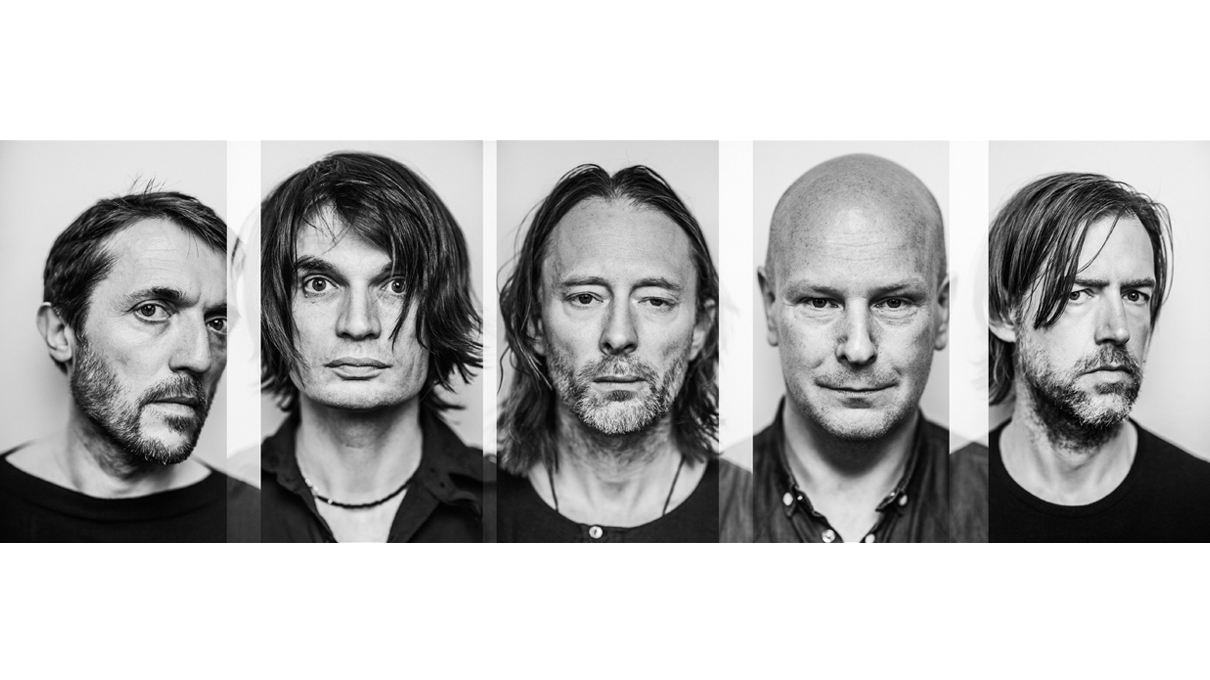You can trust Louder
Launched unannounced in digital download form on May 8, Radiohead’s ninth album landed softly on a giant mattress of rush-written critical raptures. With the opportunity for deeper reflection, A Moon Shaped Pool feels flimsy and unfocused, adding no strong new flavours or dazzling sonic shifts to the band’s 25-year track record of high-art experimentalism. Behind the vivid strings of the London Contemporary Orchestra, who guest on several tracks, these mood pieces are mostly pale copies of past triumphs, more avant-muzak sketches than bold progressive rock statements.
Billed as Radiohead’s most personal album to date, A Moon Shaped Pool was recorded in the shadow of singer Thom Yorke’s separation from his longtime partner. To map this emotional cataclysm onto every lyric would be too simplistic. But romantic trauma certainly seems to ooze from the voluptuous sci-fi lullaby Daydreaming and the folktronic elegy Desert Island Disk, with their rueful refrains ‘the damage is done’ and ‘different types of love are possible’. Both are desolate but gorgeous.
Sequenced in alphabetical order, the tracklisting is thick with songs that date back many years. Such stockpiling is not unprecedented in Radiohead’s history, but it does suggest an ominous drought of inspiration, especially when the reworked tunes include fragmentary watercolour noodles like Ful Stop and Identikit.
At least lead-off single, Burn The Witch, written around the turn of the millennium, is vintage Radiohead. It features Yorke intoning dark dystopian warnings over droning electronica and the galloping strings of the LCO that recall Bernard Herrmann’s nerve-jangling score for Psycho. This is an instant addition to the band’s canon of classics, made more memorable by its straight-out-of-Trumpton video. Closing the album is semi-mythical lost classic True Love Waits, composed two decades ago but only previously recorded in a stripped-down live guitar version. Reborn here as a deconstructed ambient piano ballad, it sounds weary and defeated, which may be deliberate, but less emotionally engaging.
Over the past decade, Radiohead (but notably principle songwriters, Yorke and guitarist Jonny Greenwood) have splintered into multiple side projects, soundtracks and solo albums. This diversification could be the real reason why this album sounds so insubstantial. Sporadically great but decidedly patchy, A Moon Shaped Pool is not the sound of a great band dying, more a great band spreading themselves too thinly.
Sign up below to get the latest from Classic Rock, plus exclusive special offers, direct to your inbox!
Stephen Dalton has been writing about all things rock for more than 30 years, starting in the late Eighties at the New Musical Express (RIP) when it was still an annoyingly pompous analogue weekly paper printed on dead trees and sold in actual physical shops. For the last decade or so he has been a regular contributor to Classic Rock magazine. He has also written about music and film for Uncut, Vox, Prog, The Quietus, Electronic Sound, Rolling Stone, The Times, The London Evening Standard, Wallpaper, The Film Verdict, Sight and Sound, The Hollywood Reporter and others, including some even more disreputable publications.


